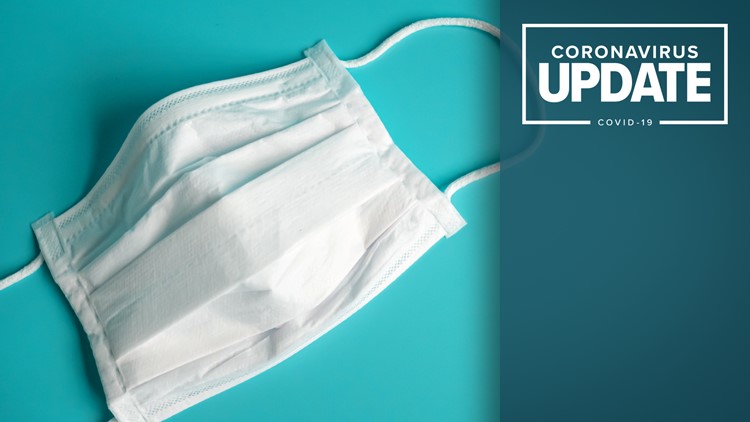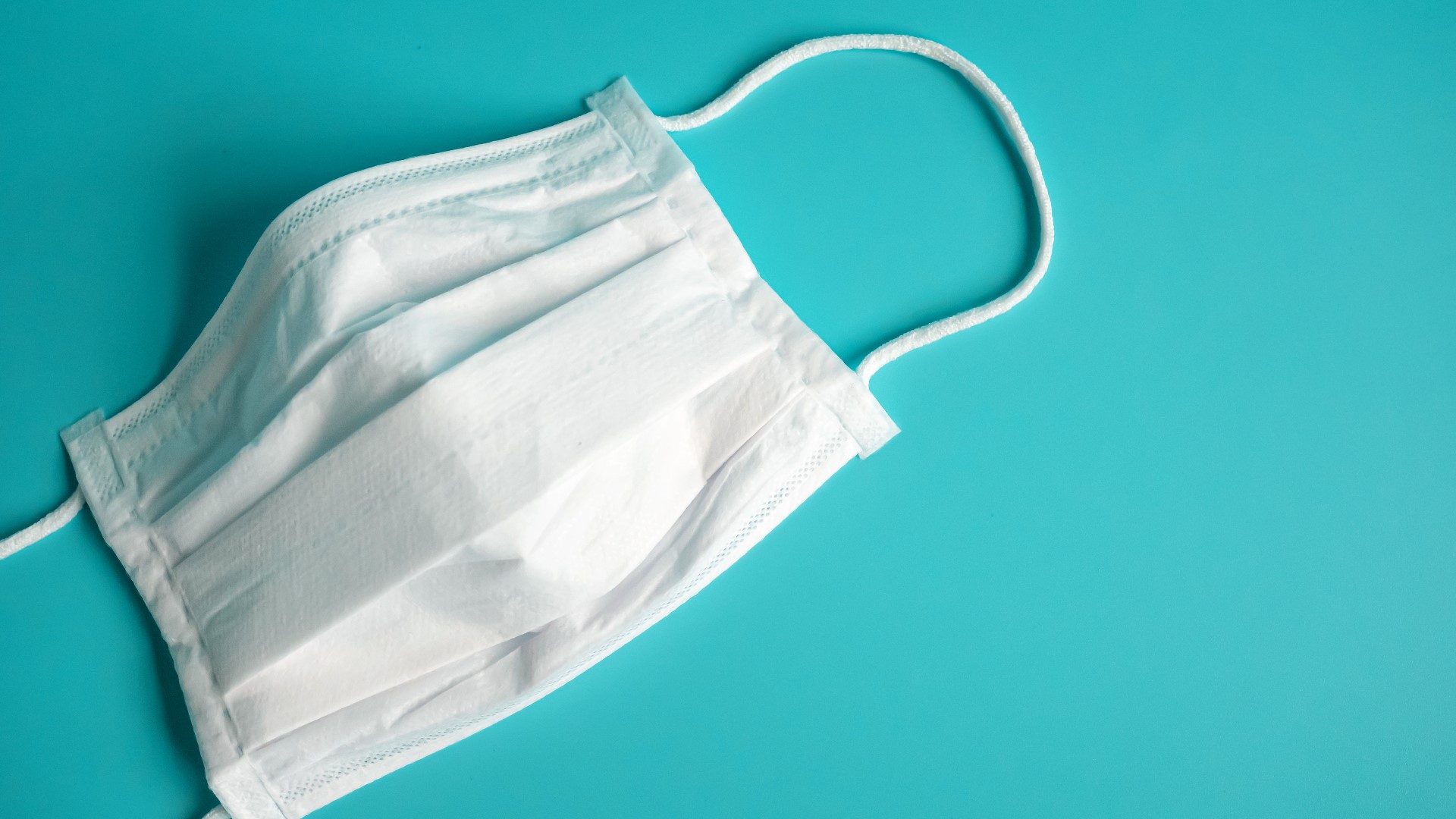COLUMBIA, Mo. — For Missouri’s prisoners and their loved ones, the state’s limited mask requirement for its prison staff has been a source of frustration during the coronavirus pandemic.
Missouri is the only state in the region that does not require all prison staff to wear nonmedical masks at all times inside prison facilities. Eight neighboring states do require prison staff to wear masks when inside prisons.
Now, with more than 300 total cases of COVID-19 directly linked to the state prison system, many are questioning Missouri’s policy more forcefully.
Since April 3, the Centers for Disease Control and Prevention has recommended the use of masks in public to reduce the spread of COVID-19, especially when it is difficult to maintain other social distancing measures.
The Missouri Department of Corrections has also acknowledged that using a mask can help reduce the spread of COVID-19. In fact, people who work in Missouri Vocational Enterprises’ sewing factories — part of a program that helps provide job training for those who are incarcerated — are making cloth face coverings.
“These face covers, designed to help reduce the spread of communicable diseases, have been distributed to inmates, corrections staff and other state staff throughout Missouri. Every person living or working in a Missouri state prison has been issued at least two of these fabric face covers,” according to the department’s COVID-19 update webpage.
But prison staff aren’t always required to wear the face coverings they’ve been provided.
Department spokesperson Karen Pojmann said staff are required to wear N95 masks any time they go into an isolation unit, which holds residents who have tested positive for COVID-19. Staff are also required to wear face coverings and gloves when they enter quarantine units, which house residents who might have been exposed to COVID-19.
Pojmann also said both staff and prisoners are required to wear masks in visiting rooms, medical units and quarantine units. She said masks are also required in enhanced care units, which are for people who need special care because of a medical condition, disability or other special needs.
Pojmann said every staff member and prisoner is “encouraged” to wear the provided face coverings at all times.
The Kansas City Star reported Tuesday that corrections officers at a Chillicothe prison are now required to wear masks in the housing units, recreation area and other places within the women’s facility. The change in policy came after the number of positive COVID-19 cases among inmates there rose from 24 to 195 in a little more than a week.
Pojmann did not respond to a request for comment on the increase in Chillicothe cases and the change in the mask policy at that facility.
James Acklin is incarcerated at Fulton Reception and Diagnostic Center, where three prisoners and two staff members had tested positive from COVID-19 as of July 14. He said he and other prisoners were given masks, but it is not mandatory to wear them at all times.
“Staff has been provided (masks), too, and they don’t wear them at all,” Acklin said. “The way we look at it is, we’re in here. We haven’t gone anywhere. Y’all go out into the community every day. If y’all catch it out there and bring it into here, then we’re all exposed to it.”
Germal Kelly is incarcerated at Western Reception, Diagnostic and Correctional Center in St. Joseph, where 20 cases of COVID-19 have been reported. He said the wing across the hall from his housing unit was recently quarantined for two weeks because they found positive cases of COVID-19 during mass testing.
Kelly said even in the quarantine wing, some officers weren’t wearing masks or other personal protective equipment.
“Some of the officers would go inside of there to do rounds or whatever, and some of them wouldn’t wear masks,” Kelly said. “When you say something to them like, ‘Hey, man, why are you not wearing a mask?’ they just have the most nonchalant attitude about the situation.”
Pojmann said the administrators at each prison are required to enforce that staff wear masks inside quarantine or isolation units.
Many people with incarcerated loved ones have been fighting for a mask requirement for corrections officers.
Kimberlee Fisher has been calling state officials for months, since before cloth face coverings were provided to prisoners and staff.
In May, Fisher said she called her fiance’s prison directly to ask why wearing masks wasn’t mandatory for staff and corrections officers after they’d been provided to everyone. She said the person she talked to was unpleasant.
“He told me we were overreacting, there was nothing to worry about, that if he needed protection from anything, it wasn’t from COVID. It was from the dangerous felons that he was being housed with,” Fisher said.
Kelly said requiring prison staff to wear masks at work would be a step in the right direction.
“Actually, I would feel a lot better, because that’s how the virus got in here,” he said, adding that he has been in prison for 10 years and could not have brought the virus inside. “These people come in and out every day, going home or when they go to the gas station or to the grocery store, or whatever they may do.”
Savannah Miller’s husband is incarcerated at Jefferson City Correctional Center, and she advocates for other prisoners as well.
Miller said she doesn’t believe a mandatory mask policy is the only way to reduce anxiety as the virus spreads, but she thinks it could help.
“It could possibly put everyone at ease, but then again, it may not,” she said. “Some may not be at ease about it because they don’t believe the prison system will continue to do what they’re supposed to be doing to help out.”
Wanda Bertram, spokesperson for the nonprofit Prison Policy Initiative, said it is irresponsible for the Department of Corrections not to require staff to wear masks.
“There’s medical evidence that masks prevent coronavirus from spreading, a virus that guards may be bringing with them into prisons every day,” Bertram said. “While I understand that guards may not care about spreading the virus to prisoners, I’m confused as to why they wouldn’t at least want to protect each other.”
Missouri’s neighboring states have one by one adopted mandatory mask policies for their prison staff.
Iowa has required prison staff to wear masks “at virtually all times” since the first day an inmate tested positive for COVID-19 in the Iowa prison system, according to a spokesperson.
Nebraska adopted a mandatory mask policy for staff April 2, while Kansas began requiring prison staff to wear masks when in department buildings, including prisons, as of July 3.
In Illinois, Department of Corrections staff are required to wear masks inside correctional facilities, and additional personal protective equipment is required for anyone who is at higher risk for exposure, a spokesperson said.
Masks are mandatory for all staff and inmates at all times in Kentucky prisons, a spokesperson said.
Staff members who work in units quarantining prisoners who test positive also have gloves and protective gowns to wear, she said.
The Arkansas Department of Corrections requires staff to wear masks when in prison facilities and around other people, though they may remove their masks in their offices when they are alone, a spokesperson said.
Prison staff are also required to wear masks at all times in prisons in Tennessee and Oklahoma, according to spokespeople in both states.
Pojmann said she was not aware that all of Missouri’s neighbors had implemented mandatory mask policies for prison staff, but she knew Kansas had implemented such a policy. She said Kansas has had a bigger issue with COVID-19 outbreaks in prisons than Missouri.
Pojmann said in an email that Missouri’s infection rate is lower than most of its neighboring states.
As of last week, Missouri had a rate of 94 cases per 10,000 prisoners, according to data gathered by the Marshall Project. Arkansas had the highest rate of reported infections, at over 1,900 cases per 10,000 prisoners.
Missouri is also testing more prisoners than nearby states, Pojmann said.
As of last week, Missouri’s per capita testing rate was higher than all but one of its neighboring states for which data is available, according to the COVID Prison Project. (Data for Kentucky and Kansas were not available.)
“The strategy that we’ve employed has been really effective at containing any outbreak of the virus within any particular housing unit,” Pojmann said, “and preventing it from spreading to other parts of a facility.”
More Coronavirus Coverage
- WHO chief scientist sees no coronavirus herd immunity yet
- Verifying statements on COVID-19 testing availability from St. Louis County Executive Democratic debate
- 'It wasn’t new to us' | Task force leader says warning from Dr. Birx was not a surprise
- CDC releases 'Decision-Making Tool' for parents in school reopening guidance
- These St. Louis area restaurants are temporarily closed again due to the coronavirus
- St. Louis area leaders defend decision to restrict youth sports




